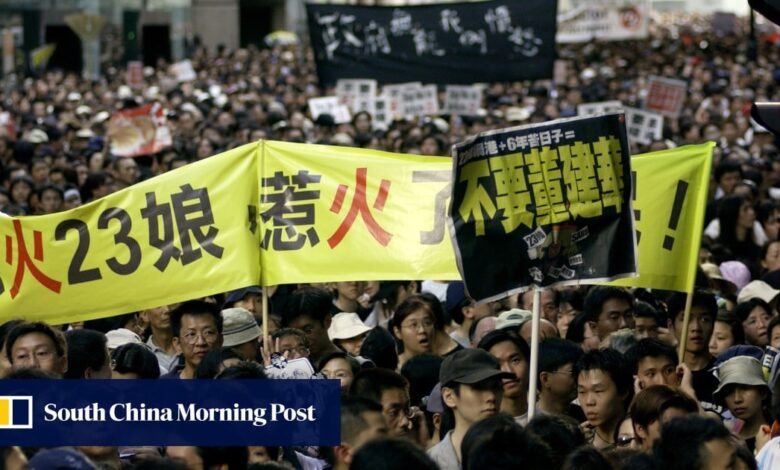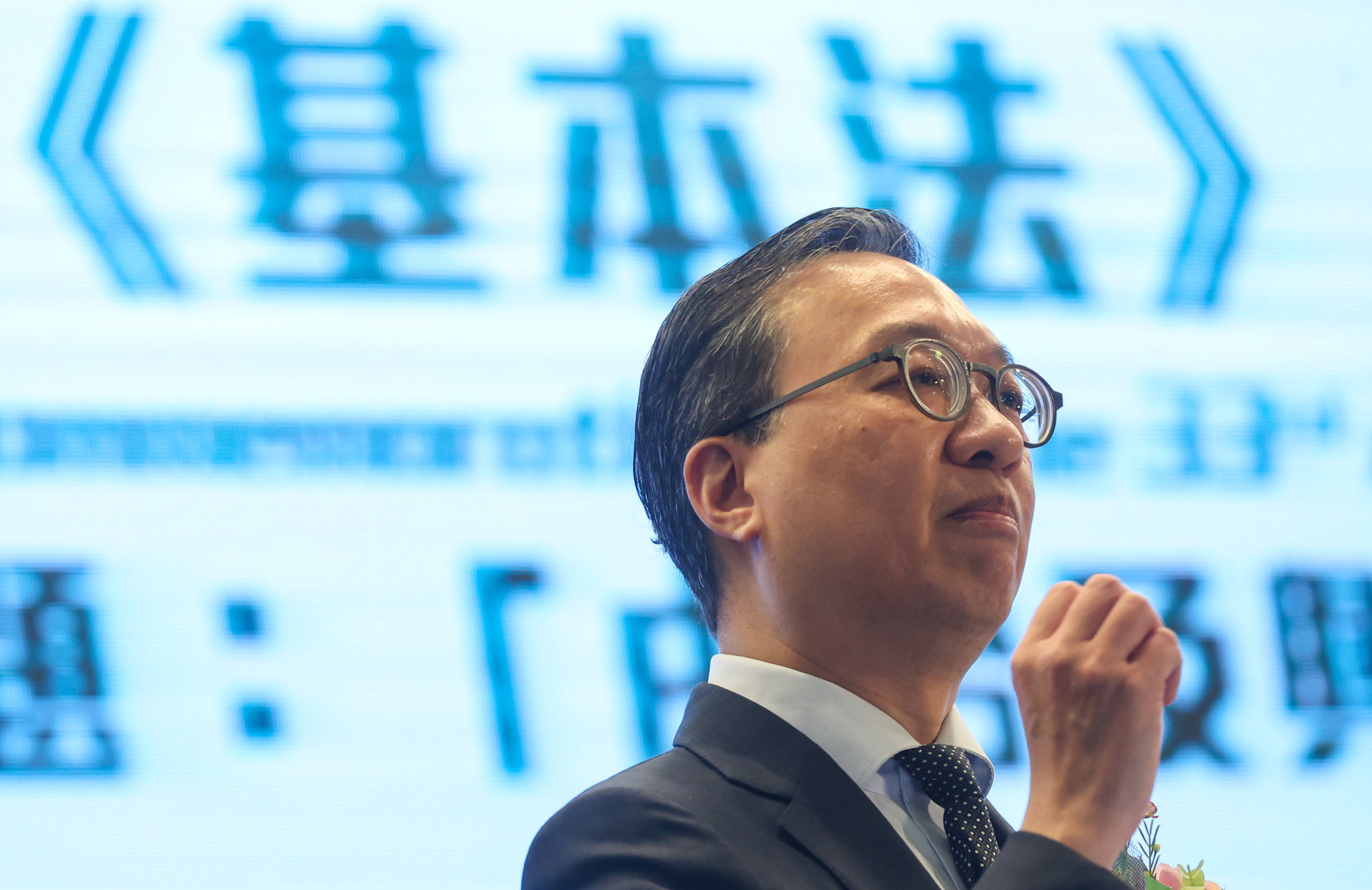Hong Kong’s own national security law ‘essential’ to maintaining Beijing’s trust in city, justice secretary Paul Lam says

[ad_1]
Secretary for Justice Paul Lam Ting-kwok was speaking on Saturday, a day after he said the government’s delay in passing the legislation was “missing homework” and “an old debt to be repaid”. Such legislation is a requirement spelled out in Article 23 of the Basic Law, the city’s mini-constitution.
“The idea behind Article 23 is that it bears the trust of us by the central government. Hong Kong people are hoping to strive for the greatest space in one country, two systems, the premise is that we must get the trust of the central government,” Lam said at a seminar on the 33rd anniversary of the promulgation of the Basic Law.
“If the central government gives us something and we do not do it well, we must ask ourselves ‘how can we successfully fight for their trust?’”

Article 23 requires Hong Kong to enact laws “on its own” to prohibit, among other things, acts of treason against the central government, theft of state secrets, as well as to ban foreign organisations or bodies from carrying out political activities in the city.
Chief Executive John Lee Ka-chiu has promised to enact Article 23 legislation by next year, which will sit alongside the national security law Beijing imposed in 2020 after anti-government protests the year before.
Authorities tried to introduce the law in 2003, but were forced to shelve the legislation after more than 500,000 people protested in the streets amid fears their rights and freedoms would be diminished.
Lam said Beijing had reminded the city of its responsibility to pass the law more than three years ago.
Article 7 of the Beijing-decreed national security legislation stipulates that the city government should complete its Article 23 legislation as fast as it could.
“This reminder has already been sent to the Hong Kong Special Administrative Region through a very serious bill document, where they said ‘as soon as possible’. This has no other meaning than the faster, the better,” Lam said.
Hong Kong to define state secrets according to city’s needs, minister says
Hong Kong to define state secrets according to city’s needs, minister says
He added that questions about the legislation had bothered Hong Kong for two decades and that the debate around the topic was “endless”.
“Any doubts or uncertainties are the most damaging to society, so we think that, from a practical angle, we should finish this and complete this historical mission.”
Lee, who delivered a video speech at the event, warned against “soft resistance” in Hong Kong, which he said had tried to cause societal conflict under the guise of livelihood concerns.
“Only this can protect Hong Kong’s long-term peace and stability, and guarantee the steady and far-reaching progress of ‘one country, two systems’,” he said.
Lam also discussed the district council election on December 10 and the altered procedures for the contest.
Hong Kong’s Article 23 ‘should define state secrets differently from mainland China’
Hong Kong’s Article 23 ‘should define state secrets differently from mainland China’
Authorities revamped the municipal-level bodies earlier this year as part of a series of electoral changes under Beijing’s “patriots-only” governance model.
“I hope to emphasise that the reform of the district council is not an attempt to weaken the public’s opportunity or right to take part in district affairs,” he said. “Our goal is only four words, bringing order from chaos.”
The proportion of directly elected seats was slashed to just 19 per cent under the changes, with the bulk of members in each of the 18 district councils being appointed by the chief executive or elected by members of three district-level committees packed with Beijing loyalists.
Anyone who wants to stand for election must get nine nominations from the area committees and also undergo national security vetting.
Lam said it was wrong to judge the changes without seeing them in action and that “the proof of the pudding is in the eating”.
“Once you try it, if we find that there is something that needs to be adjusted, there are a lot of opportunities to adjust it,” he explained.
[ad_2]
Source link





